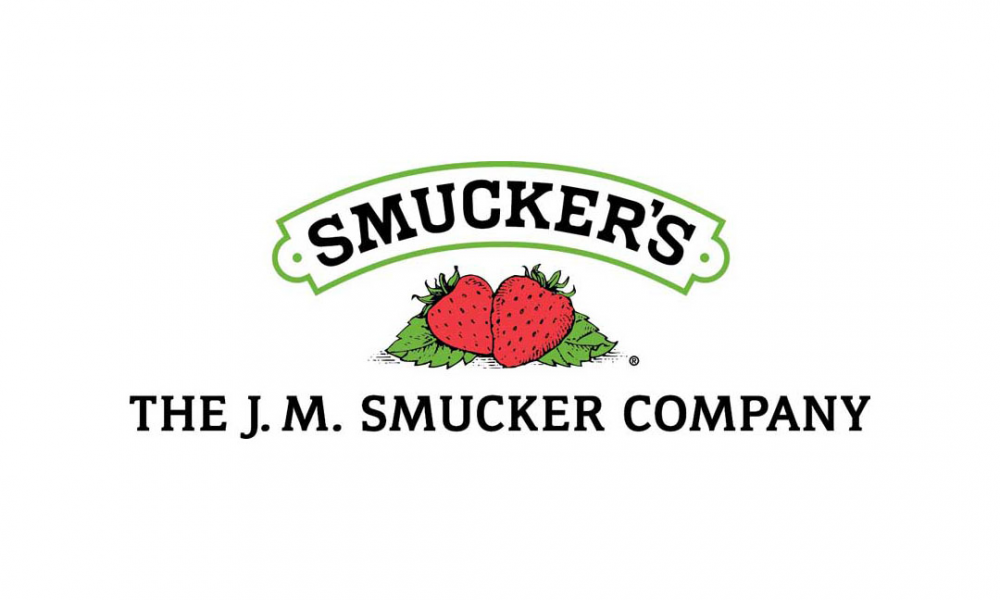
The J.M. Smucker Company Joins Partners in Food Solutions in the Fight to Improve Food Security Across Africa
MINNEAPOLIS (July 2020) – Partners in Food Solutions, a consortium of world-class food industry companies – General Mills, Cargill, Bühler, DSM, The Hershey Company and Ardent Mills – working together to address food security, nutrition and economic development across Africa has announced that The J. M. Smucker Company has become the organization’s newest corporate partner. For over a decade, Partners in Food Solutions has connected highly skilled volunteers from its corporate partners with entrepreneurial food companies in Africa to help strengthen their businesses. Volunteers have contributed more than 100,000 pro-bono consulting hours. With the addition of Smucker, Partners in Food Solutions partner companies represent over 800 years of food industry knowledge and experience.
As the population of Africa is expected to double by 2050, ensuring communities have access to an adequate supply of safe, nutritious and affordable food is more important than ever. Through a remote, virtual consulting model, pioneered by Partners in Food Solutions and recognized by political and development leaders around the world, volunteers from Smucker will have the opportunity to support African food businesses by sharing their technical and business expertise.
The partnership is the latest example of how the Company brings its commitment to thrive together with all of those impacted by its business to life.
“As a food Company, we are passionate about ensuring global food security and are thrilled to support Partners in Food Solutions and its groundbreaking efforts to aid African communities in this area,” said Tamara Fynan, Executive Director, Community Engagement and Philanthropy, The J. M. Smucker Company. “The unique opportunity to engage our employees and leverage their technical and business expertise to make a meaningful impact is especially exciting. Our employees share in our passion to make a positive difference in the world and will be eager to lend their support to this great cause.”
The timing of this new partnership could not be more appropriate. “The J.M. Smucker Company is a trusted food producer with a talented workforce who are committed to doing good in the world. They bring new expertise and capacity that will help us go even further in supporting a critical link in the African food value chain - local processors - to improve food security across the continent,” said Partners in Food Solutions CEO Jeff Dykstra. “COVID-19 has the potential to have a long-term impact on Africa's food system in ways that are unimaginable. Our volunteers are helping our clients address current challenges so they can become stronger and more resilient. The J.M. Smucker Company has a long history of creating successful brands and being able to utilize their expertise and experience will be invaluable for many of our clients right now.”
Partners in Food Solutions has a network of more than 1,200 expert volunteers who have shared their technical and business knowledge with over 1,500 clients. With the addition of Smucker, Partners in Food Solutions will be able to tap into its 7,000+ employees and provide even greater support to its African clients.
About Partners in Food Solutions Partners in Food Solutions, an independent nonprofit organization, works to increase the growth and competitiveness of food companies in Africa and beyond. Our goal is to improve access to safe, nutritious, affordable food and promote sustainable economic development across food value chains. We do this by inspiring business leaders and linking highly skilled corporate volunteers from our consortium of leading companies with promising entrepreneurs and other influencers of the food ecosystem. To learn more about Partners in Food Solutions, please visit partnersinfoodsolutions.com.
About The J. M. Smucker Company Inspired by more than 120 years of business success and five generations of family leadership, The J. M. Smucker Company makes food that people and pets love. The Company's portfolio of 40+ brands, which are found in 90 percent of U.S. homes and countless restaurants, include iconic products consumers have always loved such as Folgers®, Jif® and Milk-Bone® plus new favorites like Café Bustelo®, Smucker's® Uncrustables® and Rachael Ray® Nutrish®. Over the past two decades, the Company has grown rapidly by thoughtfully acquiring leading and emerging brands, while ensuring the business has a positive impact on its 7,000+ employees, the communities it is a part of and the planet. For more information about The J. M. Smucker Company, visit jmsmucker.com.
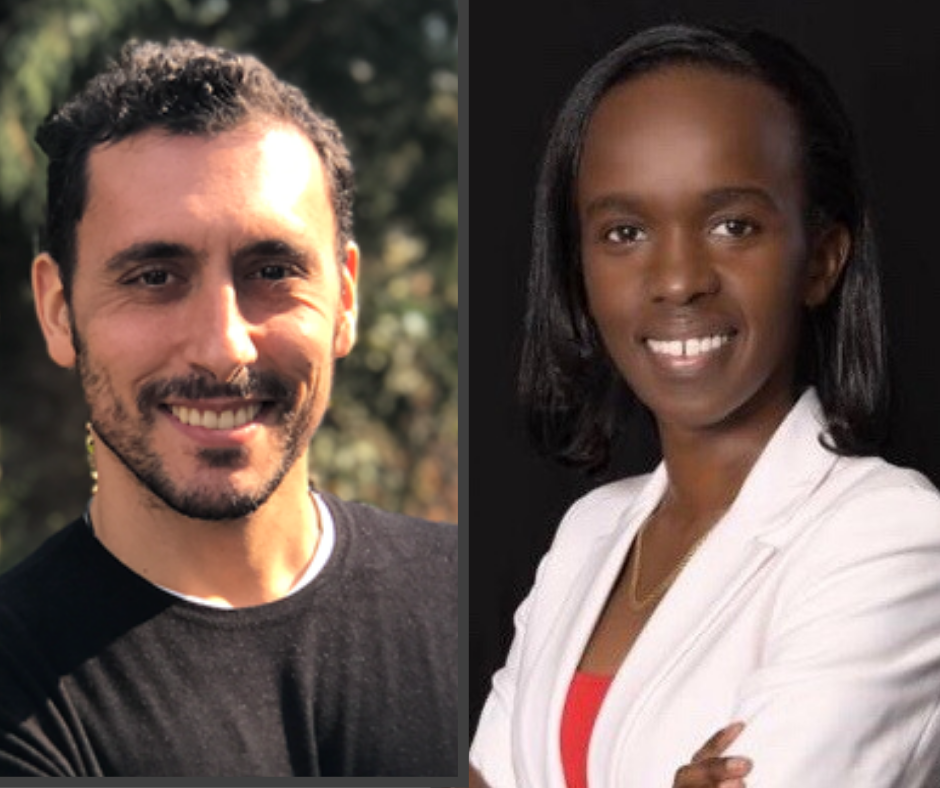
Strengthening Global Communities Through Mentorships
Whether you’re looking to network, develop new skills, or learn about a new culture, mentorships are a great way to connect with others and grow as an individual. The power of mentorships is that they often impact both sides – the mentor and the mentee – leading to a very fulfilling experience for everyone. Caio Malufe, a senior manager in corporate development at Cargill, recently joined the Partners in Food Solutions (PFS) mentoring program and was paired with Beatrice Githinji, the access to finance manager at Initiative for Smallholder Finance Advisors (ISF).
At ISF, Beatrice is responsible for assisting clients in the Alliance for Inclusive and Nutritious Food Processing (AINFP) program, supported by TechnoServe and USAID, acquire capital so they can fund projects related to improving nutrition. “My drive is to create a positive impact in the agriculture sector by improving access to finance for value-chain players,” Beatrice said. “The agricultural sector across the region is very heavily underfunded.” In her free time, Beatrice is a mentor herself. She mentors school children in her rural village to help improve their school performance and use education as a means to fight poverty. “I joined the PFS mentoring program because I want to redefine my career path, improve on other life skills, and learn about other cultures,” she said.
Caio, who joined the PFS volunteer network less than a year ago, has already participated in four projects and now his first mentorship. “I believe that the food and agriculture industry is one of the key catalyzers of impact in the world, and working toward a more equal and sustainable planet is the most powerful thing we can do,” Caio said. “I see Beatrice as someone who is supporting the financing of small and mid-sized entrepreneurs in vulnerable regions of Africa, and this is something dearly important to me. If she can leverage the conversations we have and the capabilities we discuss as a means of doing the job better, that’s what motivates me.”
Although Caio and Beatrice’s mentorship recently started, both of them have already reported learning something new. Caio said, “Our sessions so far have covered topics such as inner exploration, knowing oneself, communications strategy, and how to influence a team, which are all important themes for the work both of us are doing.” “Caio is a good mentor,” Beatrice said, “he has taken the time to understand why I am in this program and then guided the process, creating an amicable environment for the sessions. One of the critical things I have learned is the essence of being conscious and present in whatever I am doing. This has helped me a great deal in engaging with others.”
Beatrice and Caio plan to keep on meeting regularly throughout the year and continue conversations about communication strategies, purpose, professional development, and more. “I am inspired by Beatrice’s sense of purpose, and by the reasons behind her goals and ambitions in life... I do have the feeling that I am the one doing most of the learning at times.”
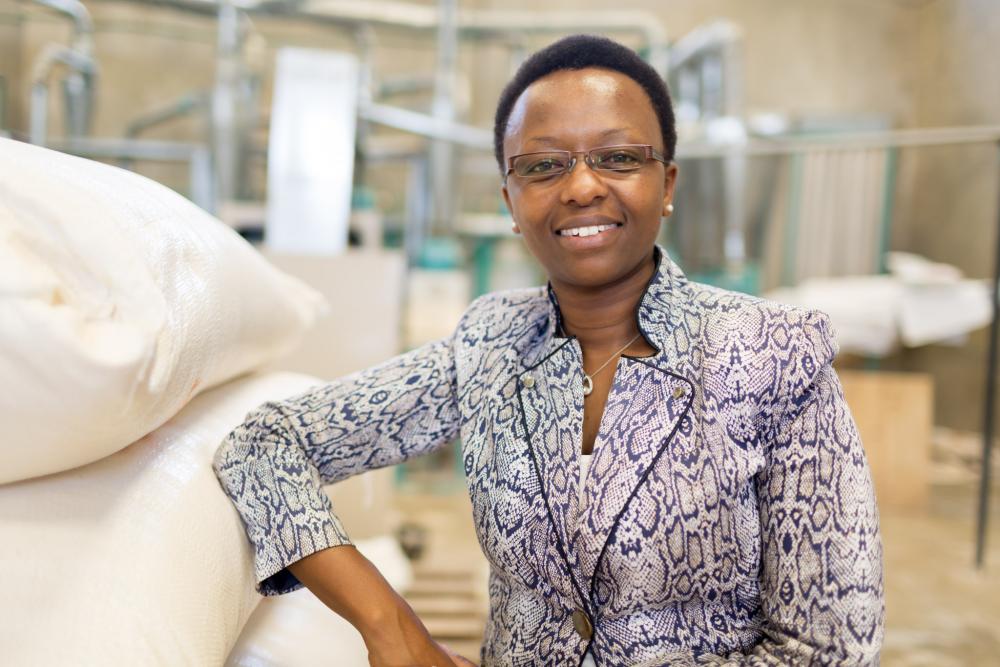
The Nuances of Entrepreneurship
Sopa Supplies, a milling company based in Kenya, recently added a new processing facility to increase its production capacity and sales. Due to low market penetration and distribution, Sopa Supplies was not getting enough orders to utilize their new facility and reach full production capacity. That’s when they realized they needed assistance in developing a marketing strategy that aligned with their updated business plan. Mukul Aggarwal, a corporate strategist at Cargill, was looking for an opportunity to use his knowledge and business skills to support small and medium-sized enterprises (SME) when he discovered the PFS volunteer opportunity with Sopa Supplies. “I chose to volunteer on the marketing strategy project because SMEs are typically resource and cash-constrained in emerging nations and I wanted to help them achieve their business goals and make a meaningful impact,” Mukul said. “Moreover, Sopa Supplies is headquartered in Nairobi, Kenya, and I wanted to learn more about the country and continent given its growing prominence in the food industry.”
One of the most interesting things Mukul learned while working with Sopa Supplies was that the challenges the company faced were analogous to the challenges most other food and agricultural companies, like Cargill, experience. “Obstacles such as increasing market share, improving/maintaining food quality, and remaining price competitive transcend geographies or the size of an organization,” he said. On the other hand, there was a lot more emphasis on the short- term (0-2 years) strategy for Sopa Supplies. Typically, at Cargill, we take a long-term (5+ year) view and look at the changes that are expected to unfold in the future to determine the best positioning for sustainable growth. With that shorter-term timing in mind, some of the areas we focused on were creating a website, changing pricing strategy, and hiring the right sales talent.”
Pauline Njeri, managing director of Sopa Supplies, worked with Mukul and the PFS team to collaborate on and develop the marketing strategy. “PFS really guided us through the entire process, ensuring that we came up with a marketing strategy that will help us have a larger market presence and help us restore our declining sales and margins,” she said. “Mukul’s involvement in this project brought in the right expertise that helped us come up with a plan that is comparable to the best practices. His leadership in this project ensured that we were on track and therefore saving a lot of time.”
Pauline is looking forward to putting the market strategy PFS volunteers helped develop into place and seeing its positive impact on sale volumes, margins, and new markets.
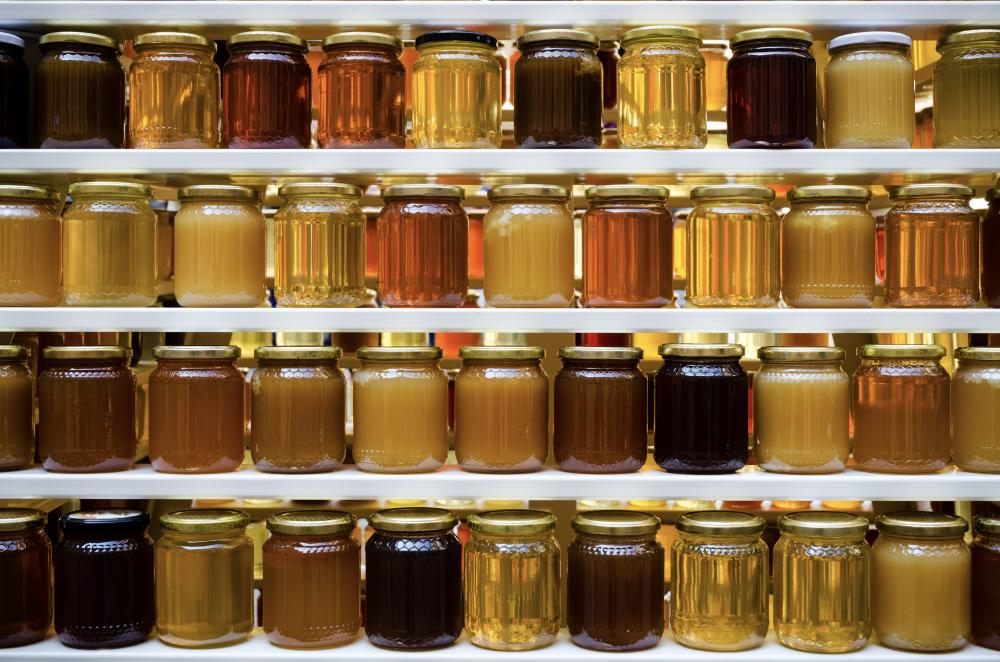
From Mills to Honeycombs: Food Safety Lessons from Uganda
After working in food safety and quality for over 19 years, Chrissie Tuetken knows a thing or two about keeping food safe for consumers and making sure the processing plants meet strict standards. “I feel like it’s my duty to ensure companies have the resources to produce safe food. I have extensive experience in this area and love sharing this knowledge with others in order to establish good practices,” Chrissie said.
Last fall, Chrissie joined PFS client Bee Natural Uganda, a honey processor, on a project that included reviewing their GMP documents before being audited by the Uganda national regulatory body. “I’ve never worked with honey before, so this was a new experience for me. I had to learn what they do every day for their honey process,” she said.
There are many steps involved in producing safe honey for customers, Chrissie explained. “The product is checked before the combs are crushed and honey is extracted, then sieved, sterilized and packed into containers. I found it interesting that many of the general food safety ideas are the same even though the production steps were different. For example, we have to ensure our suppliers bring in the correct product and that checks are performed throughout the process to confirm the products meet specifications. Like many food products, the quality of our supply chain is key in producing quality products.”
When the project ends, Chrissie hopes Bee Natural Uganda and their quality team will gain a better understanding of the GMP prerequisites and can go on to become certified in the near future. “Overall, I have enjoyed learning from Bee Natural Uganda and talking through their food safety challenges as some of them are similar to the challenges we face in our plants.”
*Update (October 2020): Bee Natural Uganda is now prepared for a food safety and quality audit. Chrissie has recently joined a second project with Bee Natural Uganda helping them put together a HACCP plan that will further improve their food safety management system.
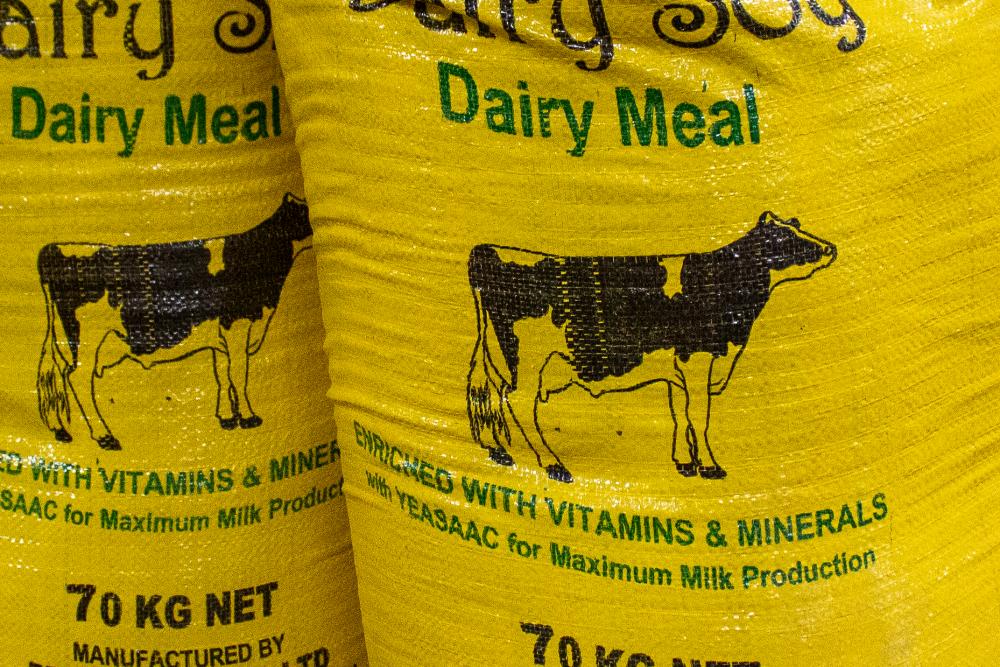
Developing Animal Feed for Kenyan Farmers
Spice World, a grain and legume processor based in Nairobi, Kenya, recently decided they wanted to expand their animal feed business. They were already producing animal feed but on a smaller scale, using by-products from their grain and legume processing. In order to grow their animal feed production, Spice World looked to Partners in Food Solutions’ expert volunteers to assist in formulating feed for ruminant animals. Joyce Kibiru, a sales manager at Cargill who also has an animal health and production background, joined the project team to lend her expertise.
“I have a particular passion for volunteer and community work; not to mention Cargill has ‘community enrichment’ as one of its pillars for success,” Joyce said. “I was excited by the rare opportunity to help other agribusinesses and play a role in ensuring African companies were successful. Adding value to the farming and feeding of dairy cows has been a key motivator for me.”
Joyce’s help in the Spice World dairy feed formulation project was invaluable. She was able to leverage her skills and expertise in animal nutrition to help facilitate proximate analyses of soybean, corn, wheat, and sunflower meal. “The purpose of the analyses was to evaluate the safety and nutritional value of the ingredients. Proximate and digestible values are important aspects of formulating a cost-effective and efficient animal feed,” she said. Additionally, she connected the Spice World team with the Cargill ruminant team based in the US and South Africa to ensure the feed formula they were developing met the needs of dairy farmers in Kenya and made sense for the local African market.
Today, Spice World is conducting preliminary trials with local Kenyan dairy farmers to grade its overall performance and see how the dairy cows are tolerating it. Once a final formula is selected, the team will then start discussing production capabilities and the cost associated with producing the product in the necessary quantity.